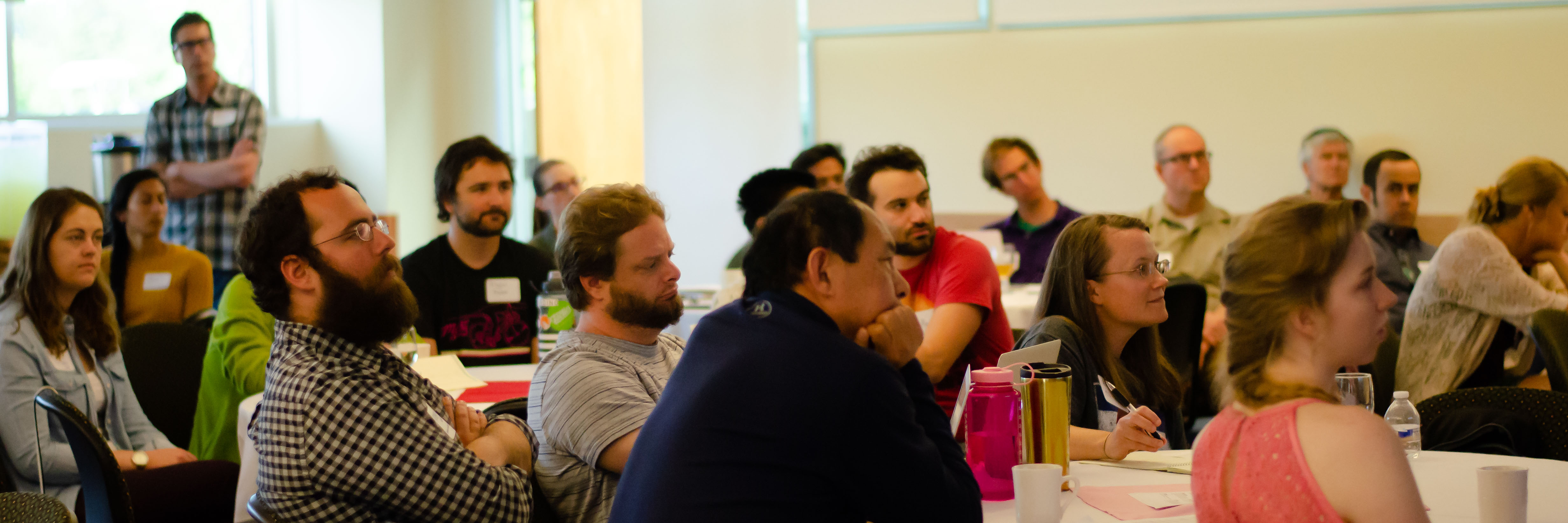Front Range Complete Program with posters, talks and attendees
Front Range Short Program
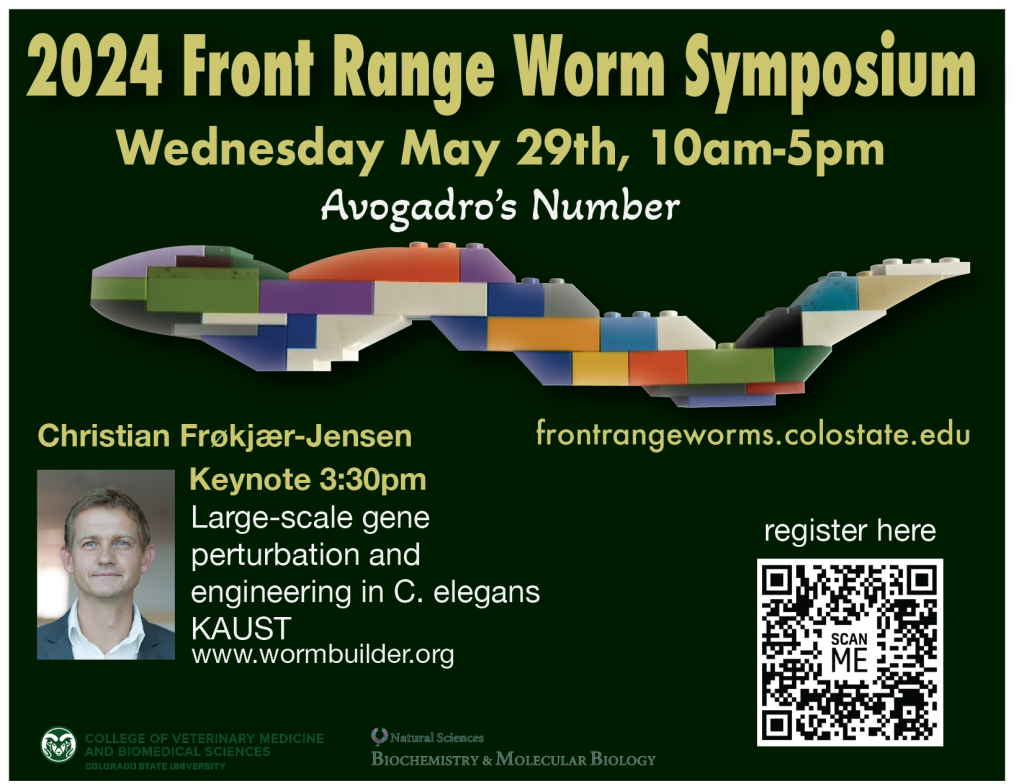
General Information
Join us for a day-long symposium (930am-5pm) to learn how nematode worms are used to make groundbreaking insights into biological questions. Come meet your fellow Front Range nematologists, learn about current research happening in our area, and enjoy good food, drinks, and posters. Learn about key points to make a good graphical abstract (with CHScienceDesign.com) or participate in our panel on PhD or Postdoc experience abroad, and finally soak up cutting-edge genomics research from our Keynote Speaker, Christian Frøkjær-Jensen. All of this will take place at Avogadro’s Number in Fort Collins, Colorado on May 29th, 2024. Chair of meeting Fred Hoerndli (CSU), Co-Chair Ann Wehman (DU).
Keynote speaker
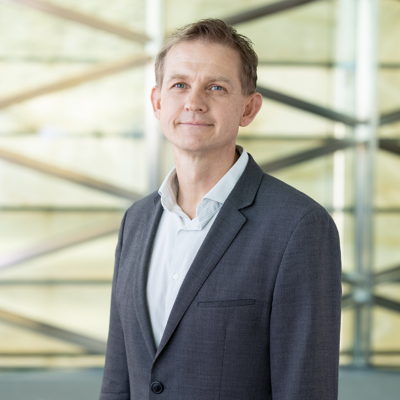
King Abdullah University of Science and Technology (KAUST)
Large-scale gene perturbation and engineering in C. elegans
Keynote address at 3:30 PM, no registration required
Synthetic biology is a nascent scientific field that aims to apply engineering principles to biological systems, with early successes in producing anti-malarial medicine and reprogramming immune cells to fight cancer. However, the ability to modify the fundamental software of organisms, the genetic code, is currently limited by our ability to “write” synthetic DNA and generate complex lines of code. For example, creating fully synthetic genomes is possible but remains a challenging undertaking limited to single-cell organisms, such as bacteria and yeast.
In the past decade, my research has focused on developing foundational genetic engineering and software tools to engineer C. elegans, perhaps the simplest multicellular genetic model organism. In just two days, the animal undergoes a deterministic developmental program resulting in adults with exactly 959 somatic cells. 302 of these cells are neurons, and the nervous system is characterized in remarkable detail: every neuronal connection and gene expression profile is known. C. elegans is thus particularly well-suited for understanding gene expression programs and a simple neural network using biological engineering.
I will present our progress in designing efficient biological parts, modifying the genome, generating artificial chromosomes from synthetic DNA pools, and scalable methods for perturbing every gene in C. elegans, allowing biological engineering on a scale not previously possible. My laboratory is currently focused on developing massively parallel reporter assays with the aim of using machine-learning algorithms to understand the basic regulatory grammar of gene expression.
Schedule
| Time | Speaker | Lab/University | Topic |
| 9:30 – 9:45 | Breakfast and coffee | ||
| 9:45 – 9:50 | hosts | ||
| 9:50 – 10:15 | Kelsie Eichel | CU Boulder | Cell-extrinsic and intrinsic mechanisms of axon initial segment development |
| 10:20-10:45 | Thiago Knittel | CSU | The RNA binding protein RDE-4 is required for loading siRNAs into Argonautes |
| 10:45-10:55 | Coffee Break | ||
| 11:00- 11:25 | Allison Hall | Regis | C. elegans Afadin is required for epidermal morphogenesis and functionally interfaces with the cadherin-catenin complex and RhoGAP PAC-1/ARHGAP21 |
| 11:30-11:55 | Gabrielle Reimann | UWyoming | Class II PI3Ks in C. elegans Membrane Trafficking |
| 12:00 – 1:30pm | Lunch Posters, Taco Bar, Beers | ||
| 1:20 – 2:20 | workshop/panels | Panel: Is it worthwhile to do a PhD/Post-doc Abroad Workshop: Graphical abstract with Illustrator | |
| 2:20-2:30 | Coffee Break | ||
| 2:30 – 2:45 | Ambika Basu | CSU | Guiding mRNA to nuclear periphery: Lessons from imb-2 in C elegans |
| 2:45 – 3:00 | Kaz Knight | CSU | Investigating the role of post-synaptic mitochondria dynamics in activity-dependent plasticity |
| 3:00 – 3:15 | Shae Milne | UWyoming | Phosphatidylserine translocase recruits rme-1 and regulates endocytic recycling |
| 3:15 – 3:30 | coffee and cookies | ||
| 3:30 – 4:30 | Christian Frøkjær-Jensen | KAUST | Large-scale gene perturbation and engineering in C. elegans |
| 4:30 – 5:00 | Hosts | Concluding Remarks Brainstorming | |
| after | |||
Event Location – Avogadro’s Number
Please join us at Avogadro’s Number, a classic Music and Beer student venue in Fort Collins, who shows how Fort Collins has attracted students, alumni and freethinkers for decades.
For those coming from outside of Fort Collins, we will arrange for day parking permits at CSU parking lot 440 just next to the Max Bus Line.
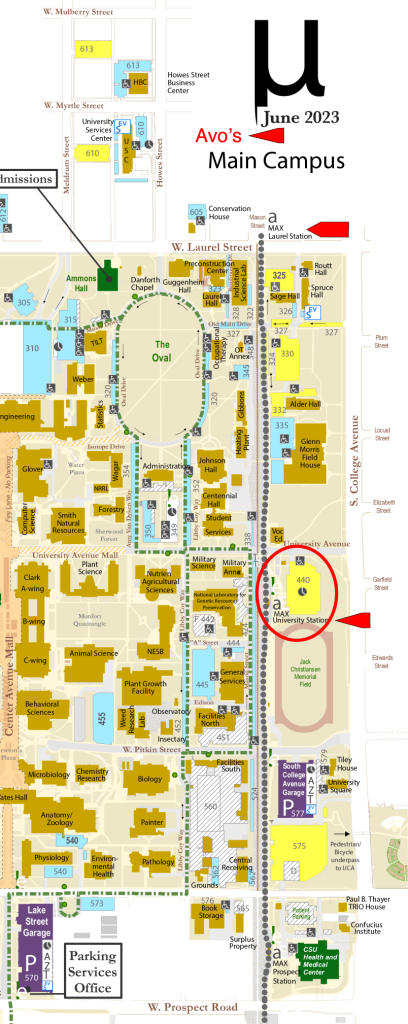
The Bus is free and runs every 15 minutes down Mason Ave. Mulberry or Laurel stops on the Northbound Max Bus both are close to Avogadro’s number.
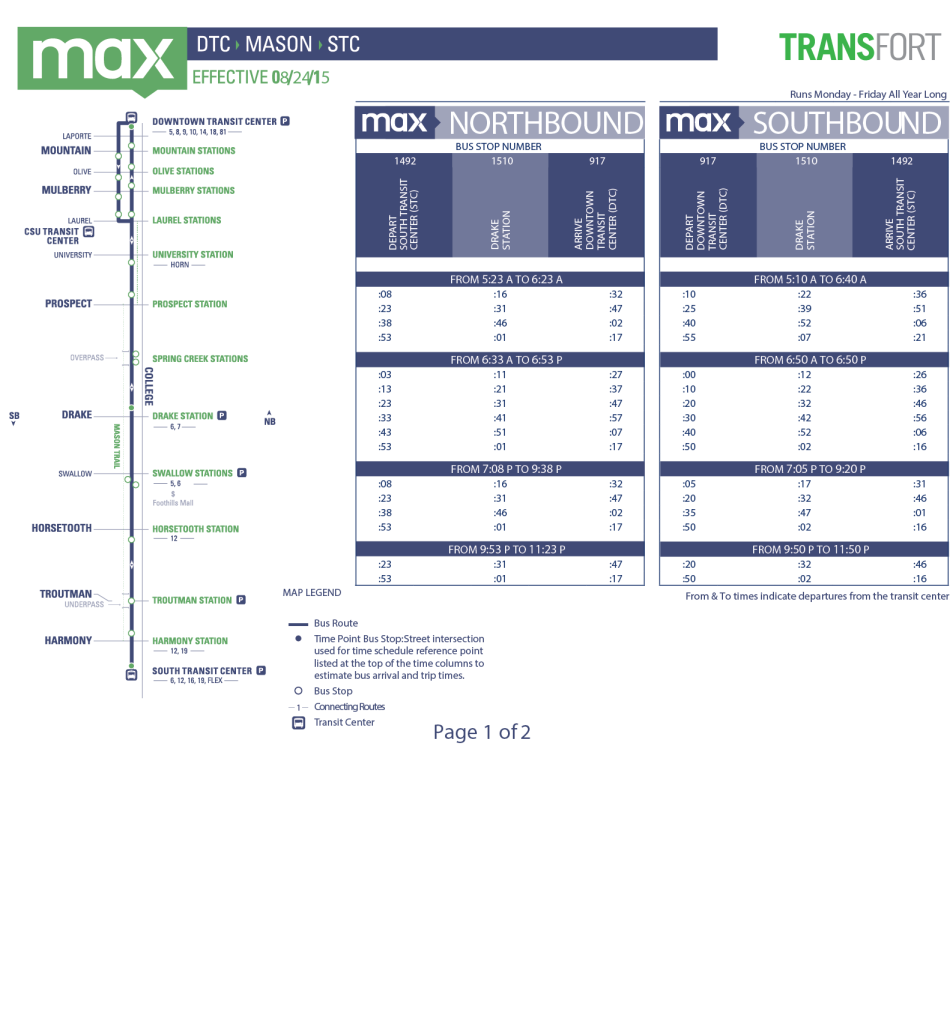
Food
The Symposium will start at 945 am, but plan to come early for coffee. We will have a taco bar for lunch with vegetarian and vegan options, and beverages from Avogadro’s with drink tickets. Be sure to let us know if you need anything specific for food when your register and we will make it happen. Have a seat outside in Avogadro’s patio for lunch but don’t forget to take your beer to the posters, ask questions, learn more about research in the front range, and build community and networks. In the afternoon, there will be another coffee break with cookies. Avogadro’s also has a cafe where you are welcome to purchase specialty coffees and other beverages.
Brainstorming for 2025
After the Keynote address, we will do some brainstorming and ask for your input for the next event in 2025. We’re interested in things like: where should we do it, who will organize it, and what format would we want? We will do this at Avogadro’s or depending on popular vote we can change to another venue in downtown.
Thank you to our sponsors




